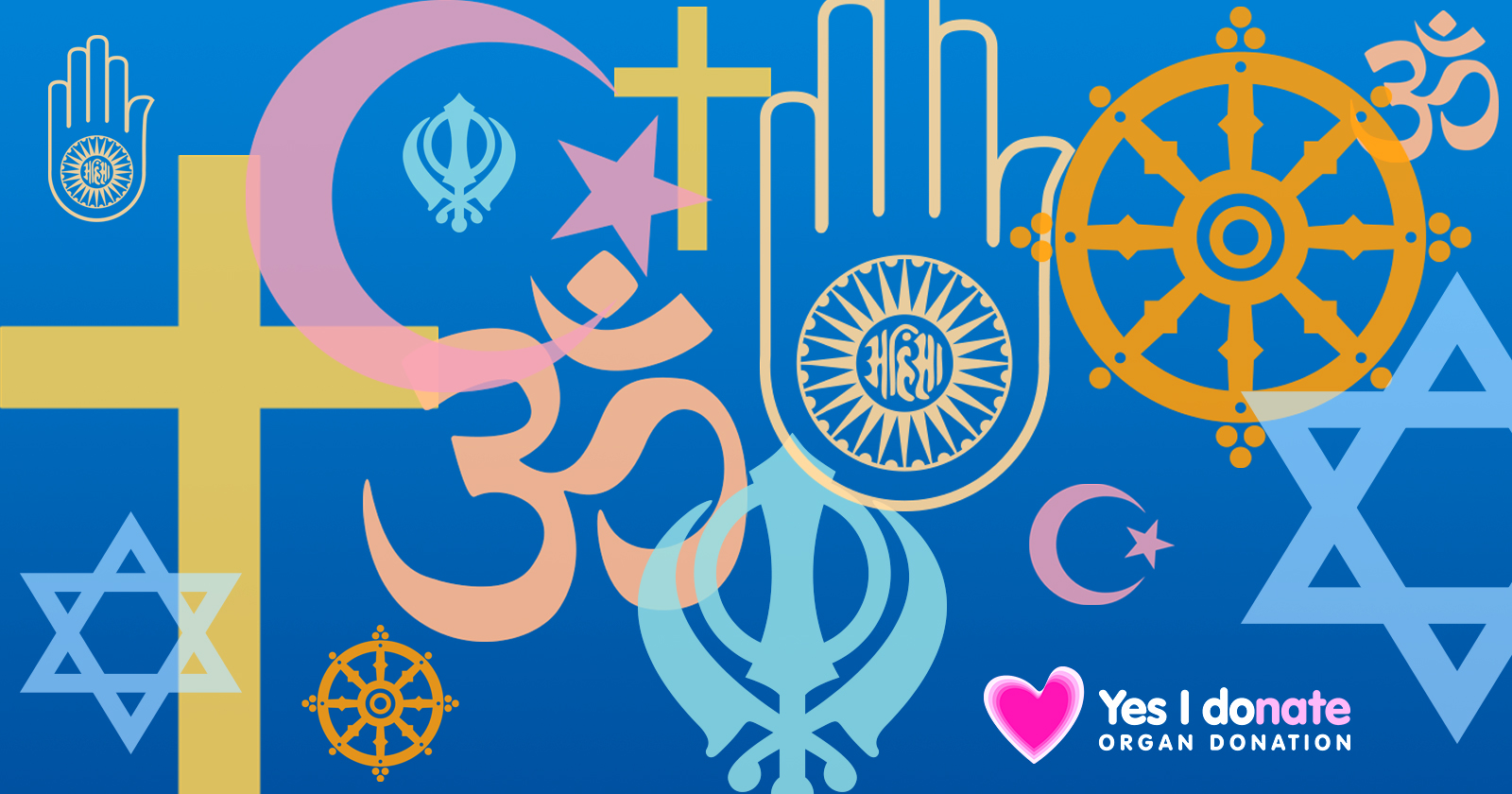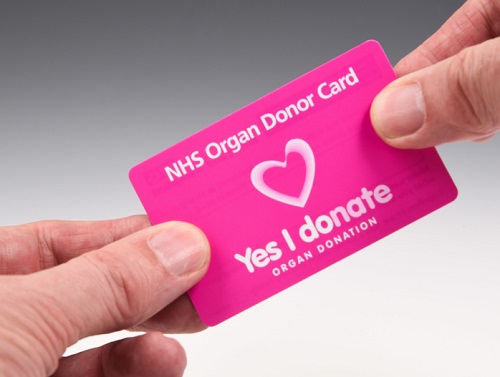Join the NHS Organ Donor Register
Record your decision to donate your organs.
This Inter Faith Week (11-18 November) NHS Blood and Transplant is encouraging people across the different faiths to help dispel myths and misconceptions by talking about organ donation.

Research carried out on behalf of NHS Blood and Transplant has found that the main barrier to organ donation among black and Asian people is the belief that it is against a person’s culture or religion. However, all the major religions in the UK support organ donation and transplantation.
During Inter Faith Week, NHS Blood and Transplant is urging faith organisations, faith leaders and individuals to discuss organ donation both within their faith communities and on social media using the hashtags #InterFaithWeek and #YesIDonate.
The aim is to increase understanding of organ donation and the stances of different faiths as well as be an opportunity for people to publicly show their support for donation.
Anthony Clarkson, NHS Blood and Transplant Interim Director for Organ Donation and Transplantation, said: “Organ donation is supported by all the major religions in the UK, but we understand that a person’s faith or beliefs can play a role in their decision whether or not to donate their organs.
“NHS Blood and Transplant is committed to working with faith leaders and groups, particularly in black, Asian and ethnic minority communities, to build awareness and break down perceived barriers.
“Please show your support for organ donation this Inter Faith Week. Talk to others within your own and in other faith communities and join the discussion on social media.
“It is also an ideal time to talk to your family about organ donation. Tell them you want to be a donor and find out what they want too. By having these conversations we can ensure that more lives are saved through people donating their organs to help someone else in need.”
 When approaching the families of potential donors, NHS Blood and Transplant’s specialist nurses in organ donation work very hard to understand what was important to the individual and whether their family needs any additional support in their decision making around organ donation.
When approaching the families of potential donors, NHS Blood and Transplant’s specialist nurses in organ donation work very hard to understand what was important to the individual and whether their family needs any additional support in their decision making around organ donation.
To support this, NHS Blood and Transplant is currently working with the major religions and belief systems in the UK to develop a faith/beliefs declaration. The declaration will allow people joining the register or updating their record via organdonation.nhs.uk or the NHS app, to state they would like NHS staff to speak to their family and anyone else appropriate about how organ donation can go ahead in with their faith or beliefs.
Bimla Parmar from Hayes became a lifesaving organ donor when she died of a brain haemorrhage aged 68. After collapsing at home, Bimla was transferred to hospital where brain scans confirmed she would not recover. Bimla’s family, who are Sikh with an Indian background, were approached about donation by a specialist nurse from NHS Blood and Transplant.
Her daughter Gurpreet Parmar, 39, who lived with her in Hayes, says:
“My mum was not on the NHS Organ Donor Register but my siblings and I were fine with it as we believed someone else should be helped by our loss. I personally had registered to be a donor a long time ago as I want to help someone else once I am gone. Mum was religious and loved by everyone. Happy, with a beautiful soul. She was able to donate her lungs, kidneys and liver to four people aged in their 50s and 60s.”
Last year, 42% of Black and Asian families agreed to donate their relative’s organs, compared to 66% of families from the overall population. The Parmar family are aware of the need for more Asian donors.
Gurpreet, says: “I hope more of my generation and younger educate the elders to sign up to donate and explain what their gift can mean to a family seeing their loved one struggle on a daily basis. I do hope my story will make more Asians sign up to donate!”
NHS Blood and Transplant has recently made a call for applications for funding from organisations to enable them to run projects to promote organ donation within black, Asian and minority ethnic communities and these applications are currently being assessed. The funding has been made available under a new Government campaign led by NHS Blood and Transplant to address the urgent shortage of organ donors from these backgrounds.
Jackie Doyle Price, Minister for Mental Health, Inequalities and Suicide Prevention, says:
“To donate is to give someone the gift of life. If you are black or Asian, you are more likely to need a life-saving transplant, but you will have to wait on average half a year longer for a donor match.
“Unfortunately, myths have hindered organ donation in black or Asian communities. This Inter Faith Week I encourage religious leaders in these communities to help spread awareness and understanding of donation so we can save more lives.”
Information about organ donation and individual faiths is available on the Organ Donation website.
A range of downloadable resources are available on the Inter Faith Website.
Ends
For additional information, or to request interviews with case studies or spokespeople please call Suzi Browne at the NHSBT Press Office on 01923 367600 or email pressoffice@nhsbt.nhs.uk.
Notes to editors
About NHS Blood and Transplant
NHS Blood and Transplant is a joint England and Wales Special Health Authority. We provide the blood donation service for England and the organ donation service for the UK. We also provide donated tissues, stem cells and cord blood. We are an essential part of the NHS, saving and improving lives through public donation.
Organ donation
Blood donation